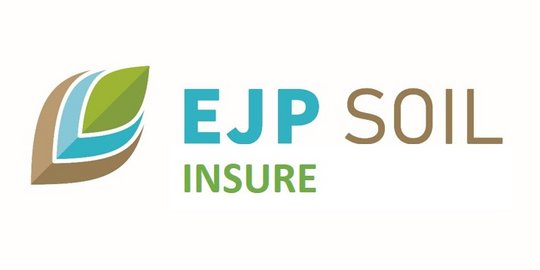INSURE
| Start: | 1 February 2021 |
| Duration: | 36 Months |
| Aim: | To improve understanding of controls of element cycling in rewetted ecosystems and to find robust indicators for the tradeoffs of wet management. |
| Contact: | Project coordinator: Kristiina Lång (kristiina.lang@luke.fi) Project communication representative: Tuula Larmola (tuula.larmola@luke.fi) |

Wet management with raised ground water table and flood-tolerant crops is an option to reduce peat decomposition and the related greenhouse gas emissions and water contamination from cultivated peatlands while still providing income for the farmers.
However, there are sites with the risk of tradeoffs like high methane or phosphorus emissions diminishing the environmental benefits. Measurable indicators used in the selection of sites would increase the success rate of rewetting and thus the acceptability of wet agricultural management of peat soils.
Experimental work together with modelling and advanced analysis of peat composition in INSURE project aims at improved understanding of controls of element cycling in rewetted ecosystems and to finding robust indicators for the tradeoffs of wet management.
Project leader and partners
Project leader:
LUKE (Natural Resources Institute Finland)
Responsible person from organization: Kristiina Regina
Project partners:
Agroscope (AGS)
Responsible person from organization: Jens Leifeld
Teagasc, Ireland
Responsible person from organization: David Wall
Aarhus University (AU)
Responsible person from organization: Poul Erik Lærke
NIBIO (Norwegian Institute for Bioeconomy Research), Norway
Responsible person from organization: Christophe Moni
STICHTING WAGENINGEN RESEARCH (DLO/WR)
Responsible persons from organization: Rudi Hessel
Call text: CM8
Evaluating soil management options for specific objectives: Trade-offs between soil organic carbon sequestration and greenhouse gas emissions and/or N and P losses
Rationale
Storing more C in soils may lead to adverse effects on the climate and on the environment, by increasing other GHG emissions (N2O, CH4) and by affecting water quality (nitrate leaching). Soil management strategies for C sequestration focus on increased input of organic matter (crop residues, cover crops, green manure, biochar etc.) or decreased turnover of soil organic matter via either increased stabilization of SOC in mineral soils (manipulation of soil microbiome and soil biology to increase formation of stabilized SOC, quality of organic matter inputs, spatio-temporal distribution of inputs) or by reducing the conditions for SOC turnover (e.g. increased groundwater table in previously cultivated and drained peatlands and organic soils). Many of these strategies have significant implications for emissions of methane and nitrous oxide, i.e. rewetting of peatlands may greatly enhance methane emissions and adding N-rich crop residues may enhance nitrous oxide emissions and nitrate leaching.
Scope
The project will analyse the potential trade-offs for major pedo-climatic zones and farming systems in Europe. The project will gather knowledge from past and current EU activities on quantifying the trade-offs and synergies, initiate and perform targeted measurements and modelling activities to fill in significant knowledge gaps, and synthesize knowledge into proposed robust indicators to predict trade-offs and synergies, as well as measures to mitigate trade-offs.
Output/Expected impact
Robust indicators to predict trade-offs and synergies, as well as measures to mitigate trade-offs.
Project type
Two medium size projects (2x150 PM), considering the specificities of organic versus mineral soils or contrasted climate conditions in Europe.
Available funding: 2*1.73 M€
Policy Briefs
Rewetting of drained peatlands provides permanent and fast GHG mitigation
Rewetting of previously drained agricultural peat soil coupled with continued cultivation in the form of paludiculture is not widely practiced, and experiments are needed to understand its environmental impacts.
In the INSURE project (INdicators for SUccessful carbon sequestration and greenhouse gas mitigation by REwetting cultivated peat soils) we measured GHG emissions and crop yields in rewetted agricultural fie
